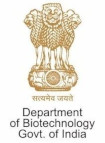Preferential Expansion of Human CD34CD133CD90 Hematopoietic Stem Cells Enhances Gene-Modified Cell Frequency for Gene Therapy.
| Title | Preferential Expansion of Human CD34CD133CD90 Hematopoietic Stem Cells Enhances Gene-Modified Cell Frequency for Gene Therapy. |
| Publication Type | Journal Article |
| Year of Publication | 2022 |
| Authors | Christopher ACrystal, Venkatesan V, Karuppusamy KV, Srinivasan S, Babu P, Azhagiri MKumar K, Chambayil K, Bagchi A, Rajendiran V, Ravi NSam, Kumar S, Marepally SKumar, Mohankumar KMurugesan, Srivastava A, Velayudhan SR, Thangavel S |
| Journal | Hum Gene Ther |
| Volume | 33 |
| Issue | 3-4 |
| Pagination | 188-201 |
| Date Published | 2022 02 |
| ISSN | 1557-7422 |
| Keywords | Animals, Antigens, CD34, Fetal Blood, Genetic Therapy, Hematopoietic Stem Cell Transplantation, Hematopoietic Stem Cells, Humans, Mice, Mice, Inbred NOD, Mice, SCID |
| Abstract | CD34CD133CD90 hematopoietic stem cells (HSCs) are responsible for long-term multilineage hematopoiesis, and the high frequency of gene-modified HSCs is crucial for the success of hematopoietic stem and progenitor cell (HSPC) gene therapy. However, the culture and gene manipulation steps of HSPC graft preparation significantly reduce the frequency of HSCs, thus necessitating large doses of HSPCs and reagents for the manipulation. In this study, we identified a combination of small molecules, Resveratrol, UM729, and SR1 that preferentially expands CD34CD133CD90 HSCs over other subpopulations of adult HSPCs in culture. The preferential expansion enriches the HSCs in culture, enhances the adhesion, and results in a sixfold increase in the long-term engraftment in NSG mice. Further, the culture-enriched HSCs are more responsive to gene modification by lentiviral transduction and gene editing, increasing the frequency of gene-modified HSCs up to 10-fold . The yield of gene-modified HSCs obtained by the culture enrichment is similar to the sort-purification of HSCs and superior to Cyclosporin-H treatment. Our study addresses a critical challenge of low frequency of gene modified HSCs in HSPC graft by developing and demonstrating a facile HSPC culture condition that increases the frequency of gene-modified cells . This strategy will improve the outcome of HSPC gene therapy and also simplify the gene manipulation process. |
| DOI | 10.1089/hum.2021.089 |
| Alternate Journal | Hum Gene Ther |
| PubMed ID | 34486377 |

